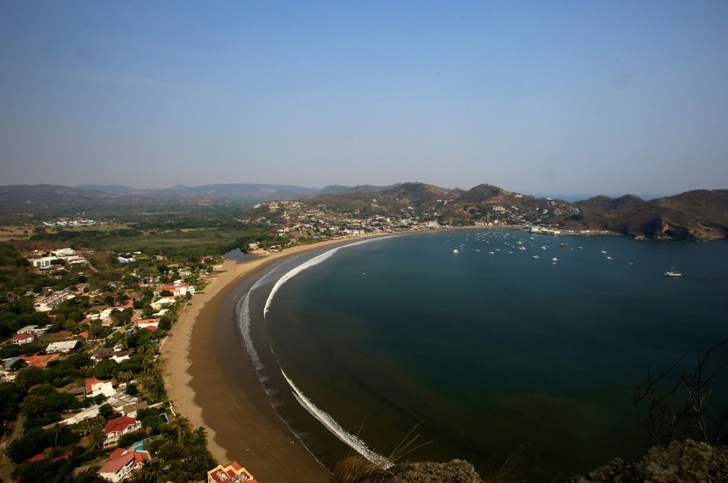Tucked away in a southern corner of Nicaragua, far from the political persecution of the opposition by President Daniel Ortega, a tiny colony of Americans and Europeans have carved out a new home on the Pacific, lured by the area's natural beauty, security and tranquility.
San Juan del Sur, on the Pacific coast 140 kilometers (85 miles) south of Managua on the border with Costa Rica, is an ideal place to retire or set up a business.
While Ortega's political opponents are thrown in jail or forced into exile -- a "continuum of repression," in the words of a recent Amnesty International report -- this little corner of tropical paradise attracts foreigners to enjoy its bars, restaurants, whale watching and landscapes.
Many expats first visited as tourists before deciding to stay permanently, while other more recent arrivals were attracted by lax Covid-19 vaccine rules.
American Christina Alty came 10 years ago to surf and has since set up an estate agency.
"I like the lifestyle of Nicaragua in general, it checks all my boxes for all the outdoor things that I enjoy: the beaches, the hiking, the scenery," said Alty.
Her clients "just enjoy the different lifestyle change.
"It's a lot slower pace of life here than wherever they came from," added the 37-year-old mother of two children who study in a bilingual school in the town of 17,000 inhabitants.
While Alty strolls along the beach, tourists lounge on chairs, lie on the sand, play sports or enjoy a dip in the sea.
- 'The space to be children' -
Two bilingual schools combine formal education with open air classes.
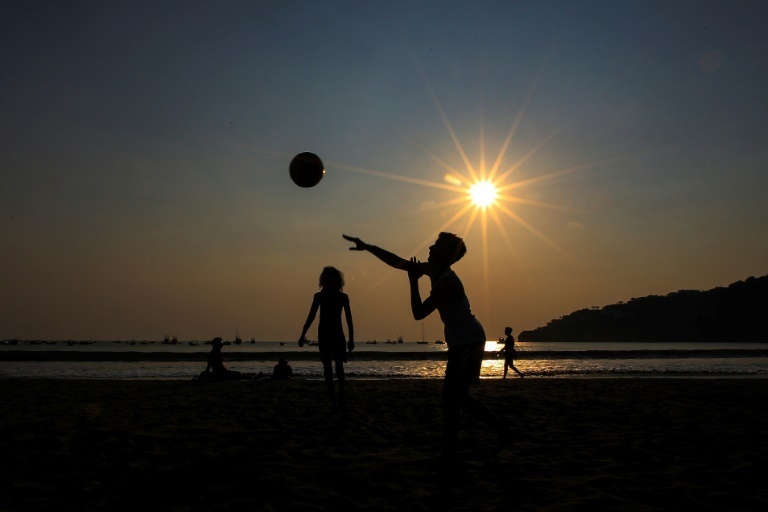
"And I think parents like to send their children here because they don't feel enclosed, they have the necessary space to stretch, run and be children," added the 38-year-old, who has lived in the town for 13 years.
The school has 170 pre-school and primary pupils.
It was established in 2016 to teach English to local children with the cooperation of US and Japanese NGOs.
The pupils, 30 percent of whom are foreign, follow the Nicaraguan curriculum but classes alternate between Spanish and English from one week to the next.
"We're delighted that our children are safe here and can study in an outdoor setting, not with gates and closed doors, and they don't need to be afraid of anything more serious such as shootings, which you see a lot these days" in US schools, said Hunter.
Arriving in 2010 to work as an English teacher, Hunter married a Nicaraguan and now has two children.
"What I like here is that they still play in the street, they still go to the park. Children here are still children and this makes me think of when I was a child, when I would go out and play until it got dark."
Hunter said she has always been treated well by the local population.
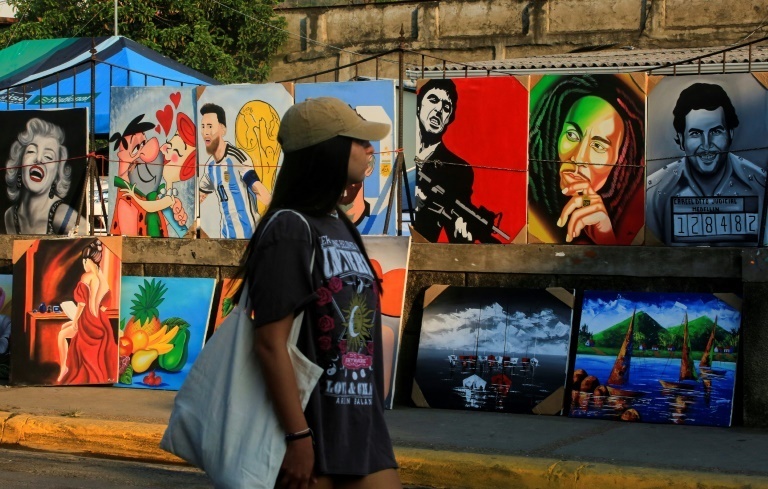
The other bilingual school, San Juan del Sur Day School, has 175 pupils with 43 percent coming from 17 different foreign countries, including the US, Britain and Russia.
- 'A beautiful country' –
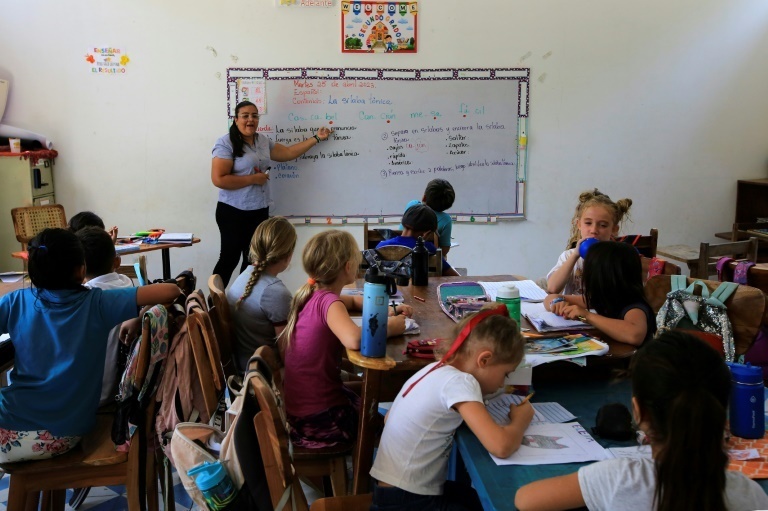
In the mid 19th century, thousands of east coast Americans passed through this small town during the US gold rush, on their way to California.
One of them was writer Mark Twain, who shares a monument with Nicaraguan poet Ruben Dario in a town square.
It remains a popular destination for tourists today.
"I like surfing and there's also beaches nearby to surf," said British tourist Mark Guitler.
"It's a beautiful country, it has great weather here, I really like the people, I really like the ocean. I mean, what more could I ask for?"
bur/fj/bc/jh
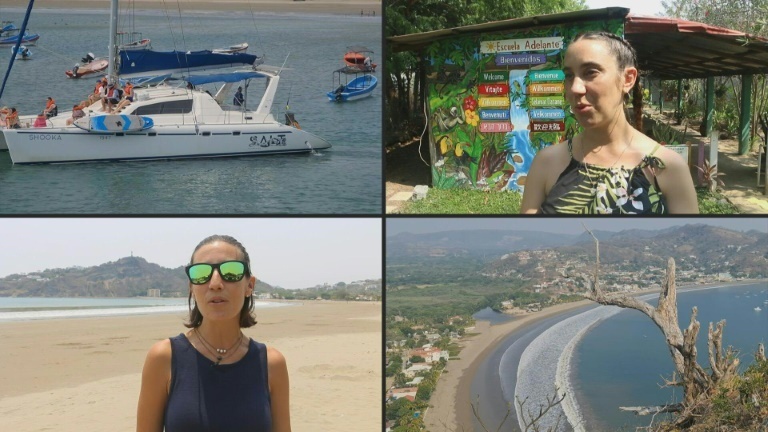
© Agence France-Presse
Your content is great. However, if any of the content contained herein violates any rights of yours, including those of copyright, please contact us immediately by e-mail at media[@]kissrpr.com.
Source: Story.KISSPR.com

